It’s a shame that more people haven’t been to this breathtakingly colorful city. From the street art of La Boca, to the tangible energy of Palermo, to the cultural and historical diversity of its constituents, Buenos Aires left my jaw on the floor at nearly every corner. Beyond that, here I met Porteños (locals of Bs. As.) and tourists alike who shared stories and experiences with me that I’ll never forget. Where to begin…
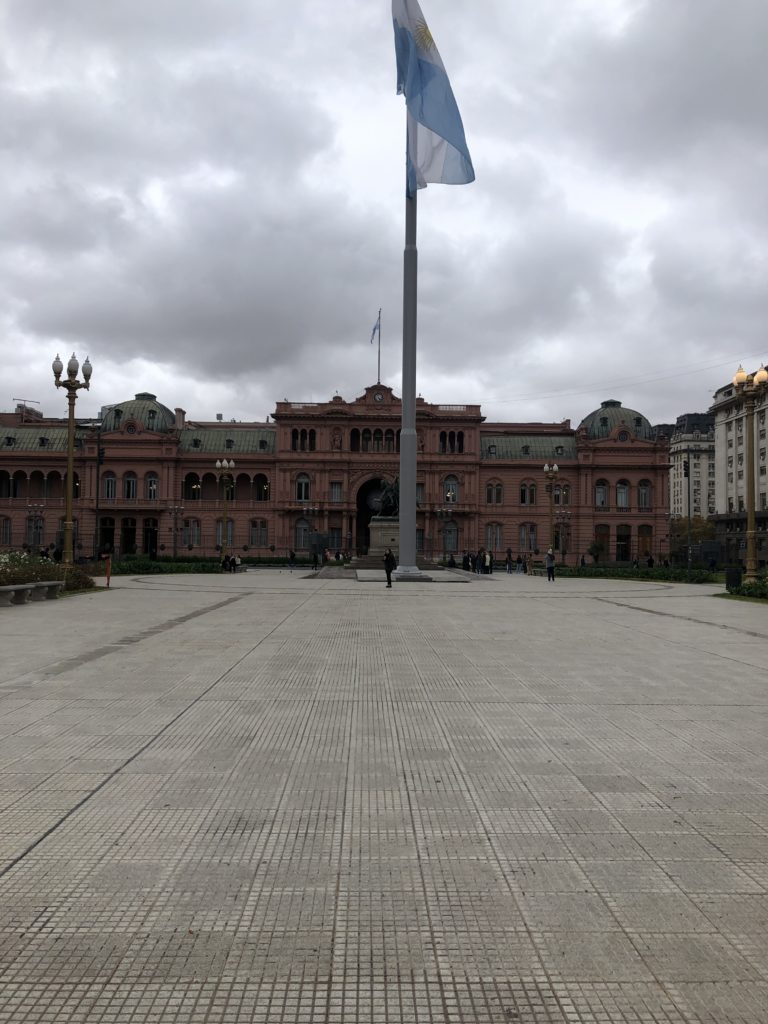
I began my stay here at a cozy hostel in Recoleta, one of the more relaxed, trendy neighborhoods that’s filled with parks, restaurants, cafes, museums, bars — you name it; they have it. After catching up with an old friend during my first night in Retiro, a once-wealthy neighborhood that’s now renowned for its antique, classical architecture, I spent my first full day abroad exploring the expanse of Recoleta. The barrio (neighborhood) is known for its stunning cemetery, which houses former political, religious, and cultural icons from around the country. Walking around the graveyard felt like exploring a vibrant maze of architectural prowess more than anything else, but I think this is largely due to the vast amount of visitors (and cats) that pepper its walkways. Behind the cemetery stood a modest museum of modern art. Its exhibits ranged from youthfully jovial, such as the shoes-off-and-sock-your-way-around-a-felt-floor piece, to the powerfully intimate, such as the thematic section that offered a glance into the visceral struggle of women in 21st century Argentina. I’d see several protests with thousands of participating women over the next week in the capital city, with topics ranging from abortion rights to equal pay, and I grew to appreciate over my time here that contemporary women’s rights issues can be felt at the global level.
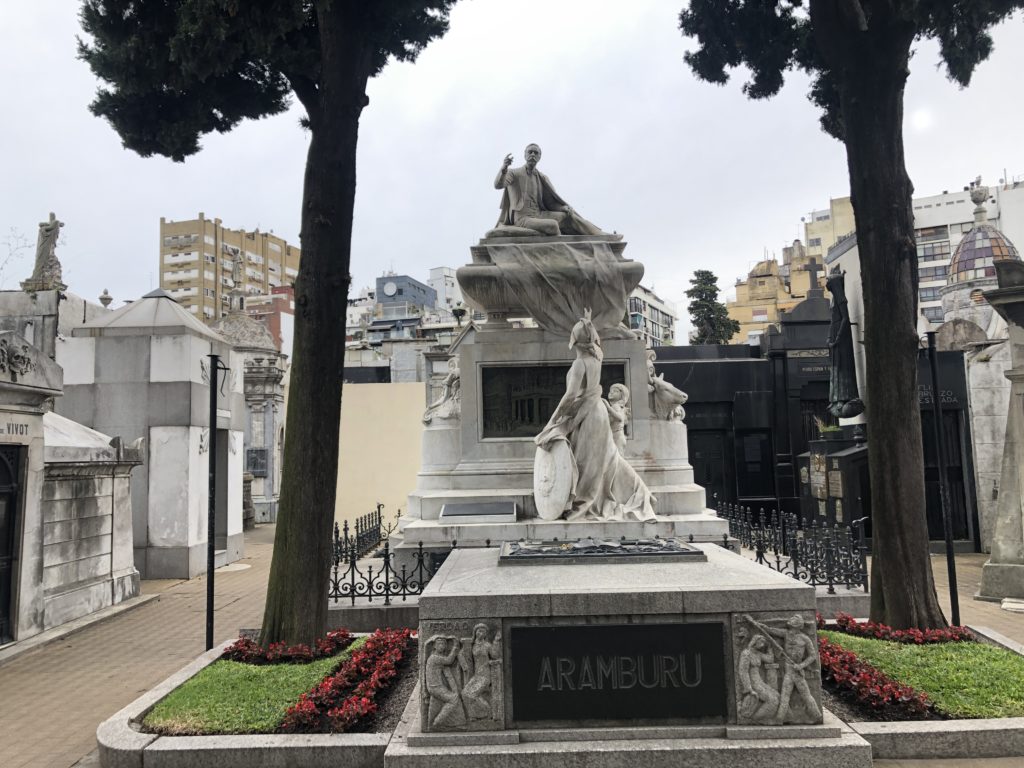
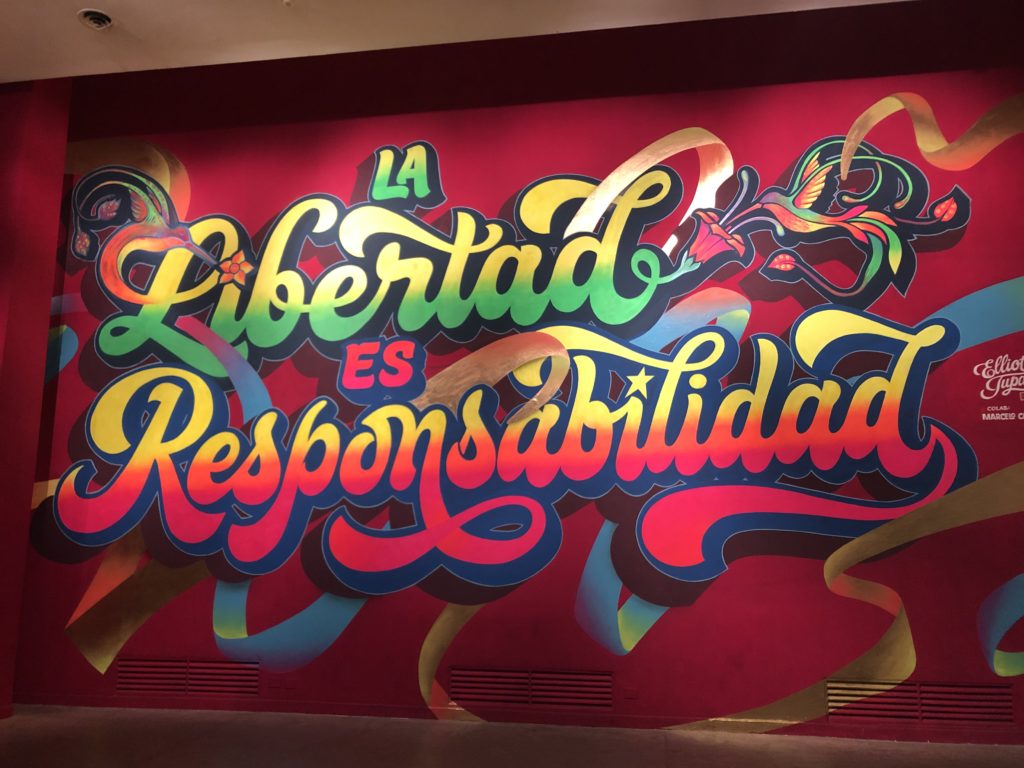
Afterwards, I wandered about until finding a cafe where I could read Dostoevsky’s Crime and Punishment while enjoying an incredible Argentinian coffee, filled with all sorts of cinnamon and chocolate and who knows what that indelibly improved my day. I only reference the reading because, on my way to a cooking lesson that evening, I realized that I had left my Kindle in the cafe. Unbelievable! 24 hours into my trip and I’d already lost something. I was really upset, but I resolved to make the most of my day and enjoy learning how to grill an Asado and prepare Mate. However, the map’s address led me on a 30 minute walk to… an empty street. I guess the restaurant had relocated and never updated their location? Before coming to Argentina, my old friend advised me to expect “nothing to work as it should,” and I was already beginning to understand that a bit too well. I ended up eating dinner alone at a popular restaurant in Palermo, one of the city’s trendiest neighborhoods. Instead of going back to the hostel after eating, though, I opted to follow my gut to the Milonga down the road and spend a few hours learning to tango. Even though I was the youngest person by a few decades in the surprisingly crowded dance hall, I had a blast practicing my Spanish and even playing chess against a few Porteños at the bar. The day was far from perfect, but at least it ended well.

My experience in Buenos Aires, and my perspective of what life is like for some abroad, radically shifted the next day. I moved from my cozy Recoleta hostel to “Milhouse.” Located in the city center, HostelWorld recommends Milhouse as one of the best hostels in Buenos Aires. I’d soon learn that Milhouse won its amazing reviews by being the most vibrant party hostel in all of Buenos Aires (if not all of Argentina). Filled with hundreds of 20-somethings, the hostel had dozens of eight person bedrooms, planned activities, a restaurant, and a bar with more happy hours than regular ones. Within minutes I was introduced to people from nearly every continent (sorry Antarctica), and I even met someone from the Bay Area who’s mutual friends with one of my colleagues. Later that night, I went to the hostel’s organized party, which was really an elaborate pre-game for a 2-7AM club excursion. I’d meet a pair of friends from Florianópolis there, one of whom is a security sales engineer from Boston taking a work sabbatical, the other being a “digital nomad” from Los Angeles who was working on a novel. I didn’t know it at the time, but these two would be instrumental in shaping the period of my travels when I’d eventually travel to Brazil.
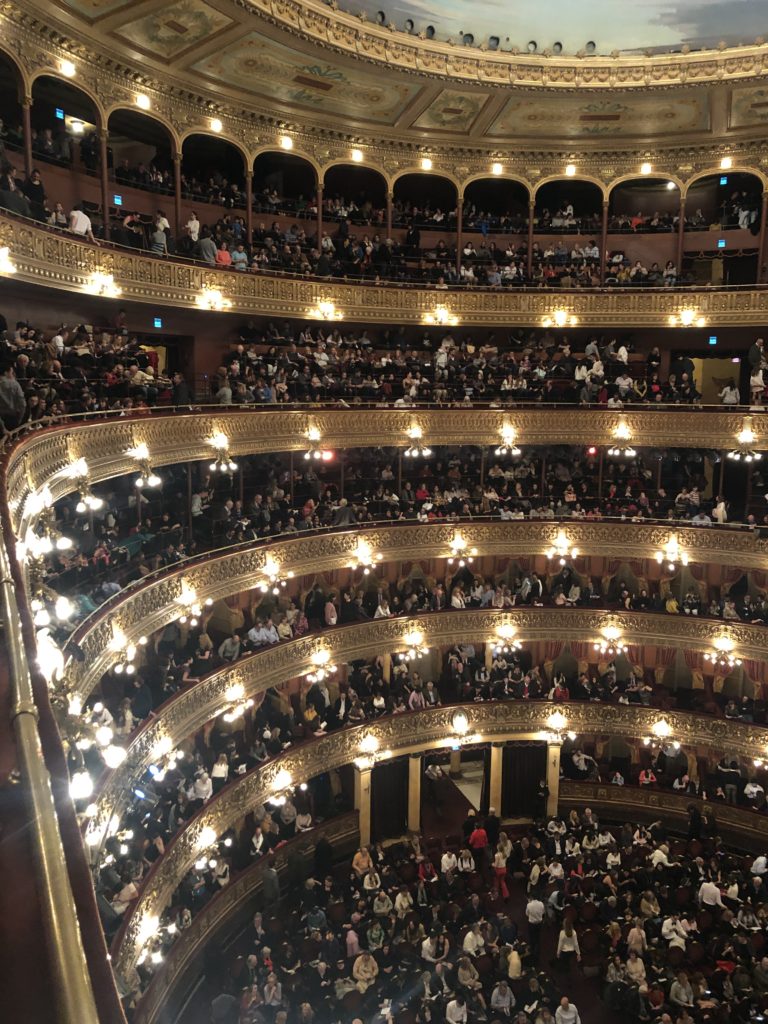
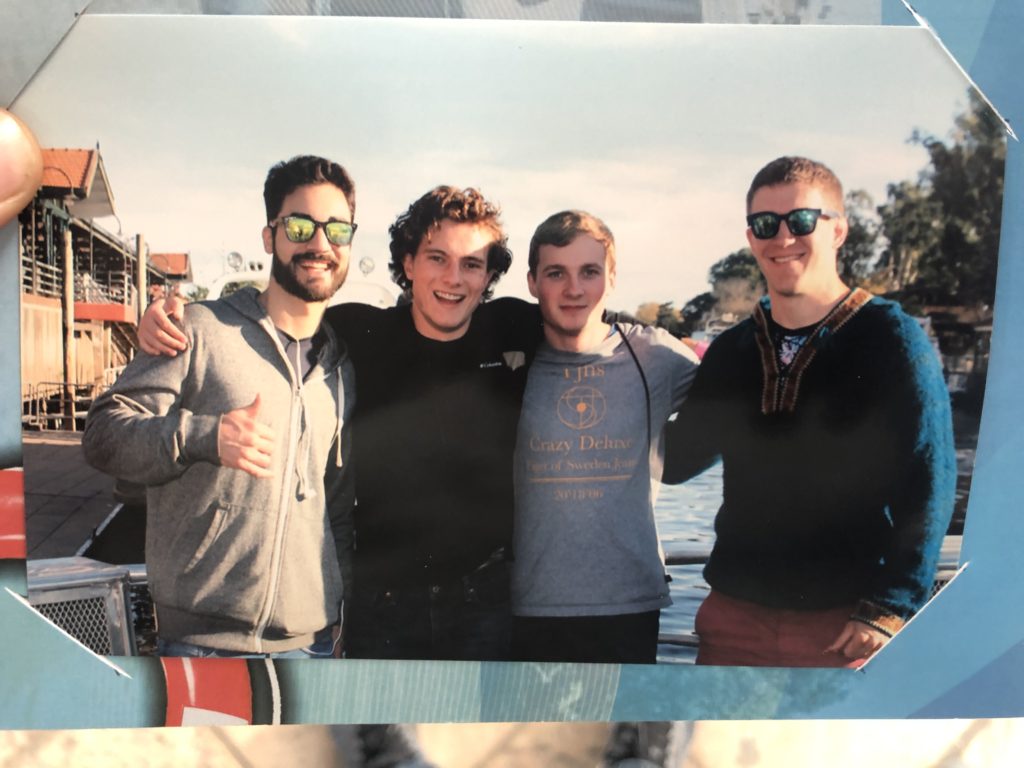
My ten days in Buenos Aires were filled with an unbelievably diverse array of events. I ended up staying at Milhouse for over a week and making several friends with whom I ate unbelievable asados at Argentinian Parrillas, drank shockingly cheap draft beers, explored parks and museums, and danced (to tango, salsa, house, and more). From horseback riding on the pampas of Luján, to catching several soccer games at the rowdy Locos x Fútbol bar, to attending a ballet at the world renowned Teatro Colón, where I’d coincidentally meet a girl dating someone in the Argentinian orchestra — which further led me to meeting and befriending several members of the orchestra at the bars later that night and throughout the week — I couldn’t have asked for more from the city.
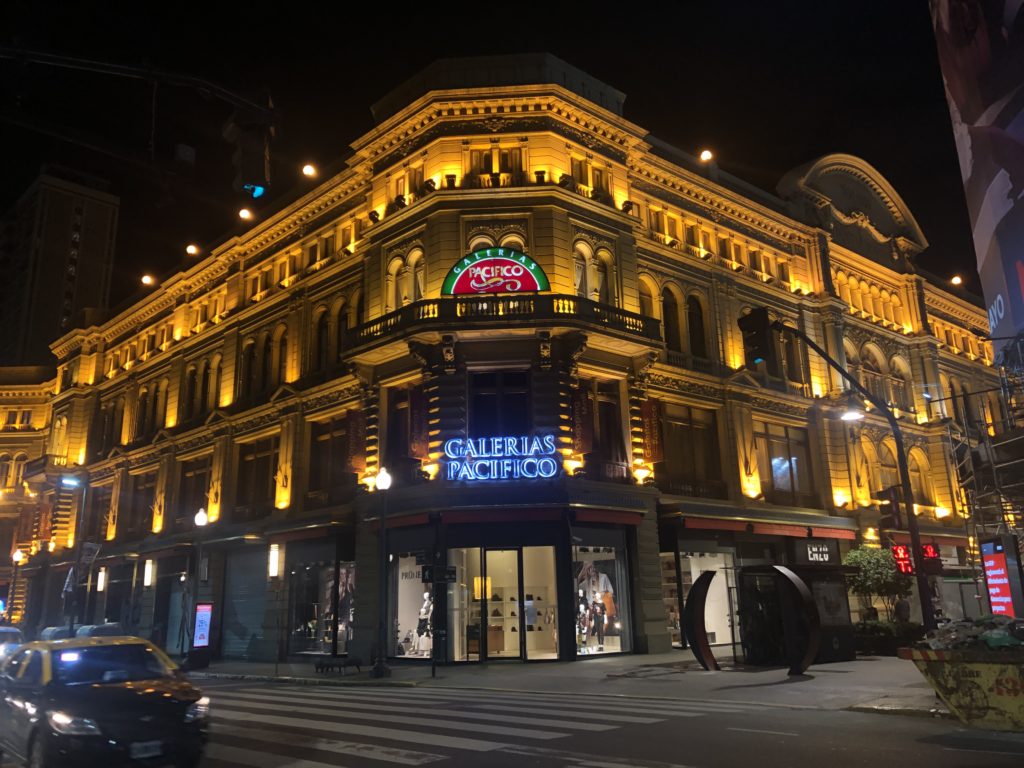
With that said, I will say that my experience as a traveler is vastly different from that of a local Porteño. I had the privilege of staying in some of the trendiest, safest neighborhoods, but the city is almost renowned for its juxtaposition of prosperity and poverty. Retiro, for example, has some of the most beautiful architecture I’ve ever seen; literally fives minutes walking takes you across the freeway to Villa 31, one of the largest, most dangerous slums in Argentina. My friends in the orchestra lamented the government’s corruption. For example, due to international tariffs and other barriers to free trade, buying an iPhone in Buenos Aires usually costs well over $2,000, and the residual money from that payment doesn’t go to Apple — it goes directly into the pockets of politicians. The situation gets even more dismal when one takes into account the 55% inflation that’s been ravishing the country for well over a year now. My friend from home who’d been living there commented that she’d seen the cost of coffee double in just a year, and the ARG/USD exchange rate had shifted from 27:1 to 45:1 within those twelve months. Though Buenos Aires and Argentina were once some of the wealthiest places on Earth, the country’s riches have long faded, and its culture exudes a tangible longing for the past.
Lucia and Héctor, two of my friends in the orchestra, remarked that my experiences at university in California (and especially those involving fraternity life) sounded more like movies than reality, and it was at this point that I began to viscerally understand my deep-seated, unequivocal privilege back home. Disregarding the arduous visa process (which shouldn’t be disregarded), travel alone is so expensive for even upper-middle class Argentinians that going somewhere like the United States is a dream that very few get to realize.
Notwithstanding the country and city’s laundry list of issues, my new friends and cultural experiences had me genuinely considering whether I should set up shop in a Buenos Aires AirBnb for the summer. However, knowing I could always come back, I decided to continue onward into the mountains of Patagonia a week and a half after arriving. Buenos Aires helped me find my footing as a solo traveler, and I left the city far more confident in both my Spanish and myself than when I had arrived, ready to take on whatever challenges South America would throw at me over the coming months.
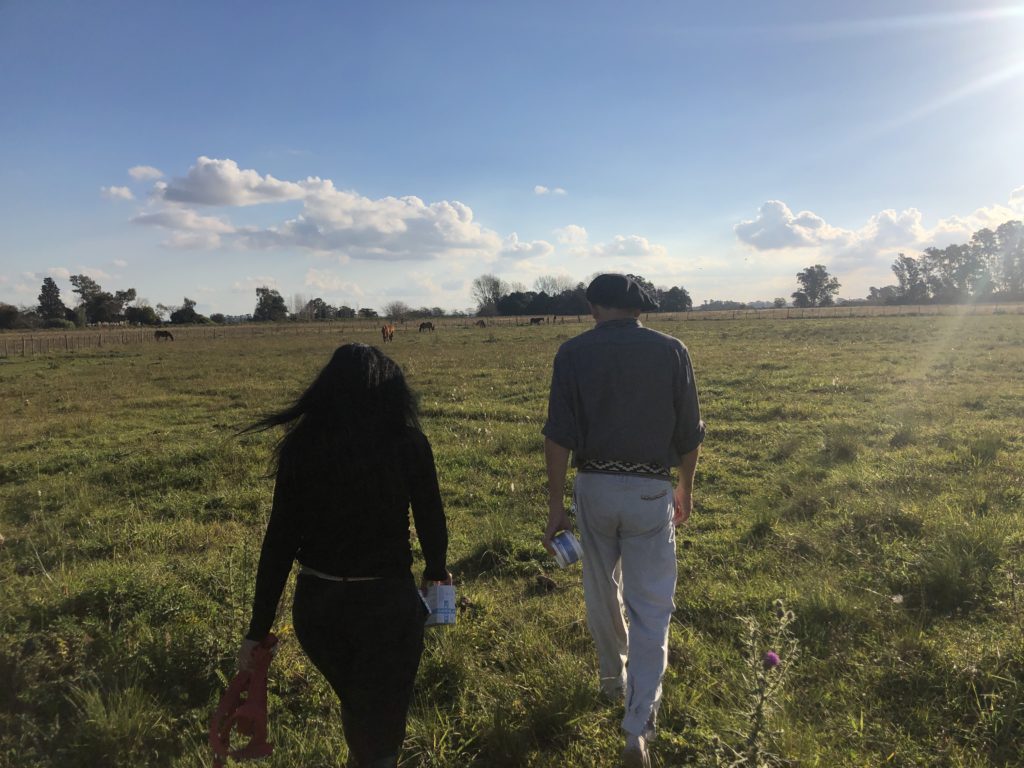
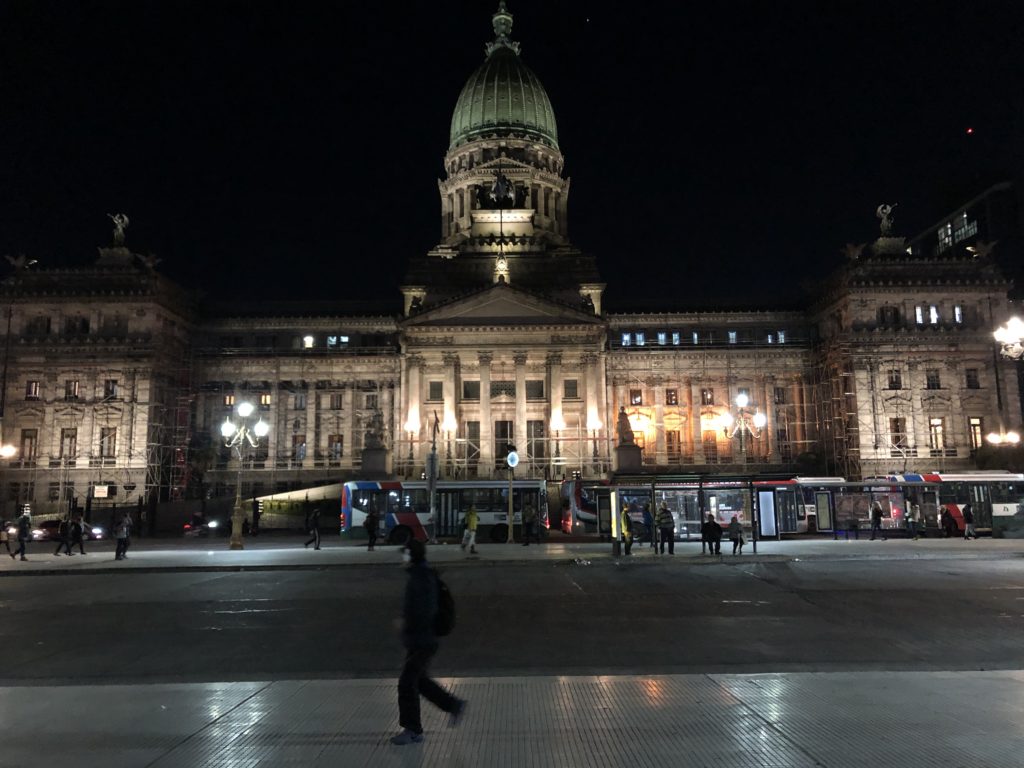

Oh yeah, remember that Kindle? I ran back to the cafe a day later as a last-ditch effort to see if it someone held on to it. They did!!! I asked in progressively-less-broken Spanish if they’d found a Kindle the day before, and amazingly, they handed it back to me no questions asked. At this point I recalled a parable told to me years before, which I’ll try to recount here without butchering it too badly:
A man once crossed a river with a guide to an unknown town. He asked the guide, “What are the people like over there?” The guide replied, “What are the people like where you’re from?” “Oh, they’re great, some of the most genuine, thoughtful people I’ve ever met.” After thinking a moment, the guide said, “They’re just like that over there as well.”
Later, a different man crossed the same river with the same guide to the same town. The new man asked the guide, “What are the people like over there?” The guide replied, “What are the people like where you’re from?” “They’re terrible. Deceitful, slimy, you just can’t trust any of them.” After thinking a moment, the guide said, “They’re just like that over there as well.”